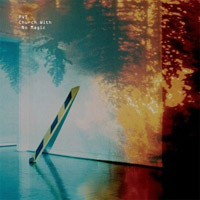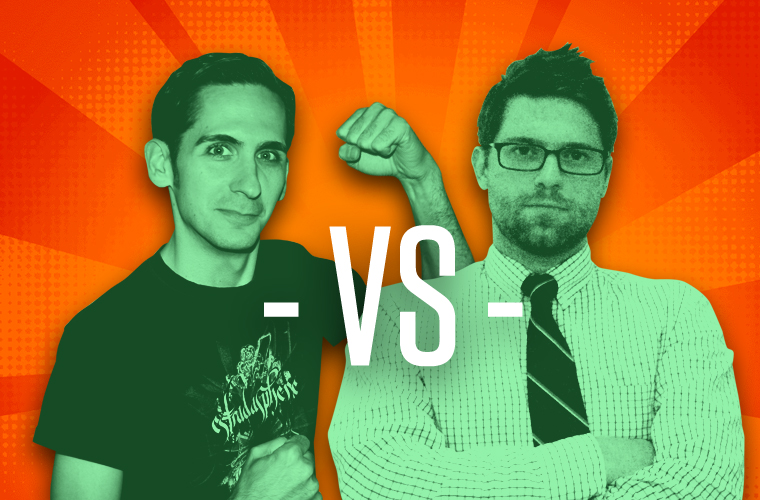Scott Morrow is ALARM’s music editor. Patrick Hajduch is a very important lawyer. Each week they debate the merits of a different album.

PVT: Church With No Magic (Warp, 8/10/10)
PVT: “Light Up Bright Fires”
[audio:https://alarm-magazine.com/wp-content/uploads/2010/09/PVT_Light_Up_Bright_Fires.mp3|titles=PVT: “Light Up Bright Fires”]
[Stream all of Church With No Magic on PVT’s website.]
Morrow: Formerly known as Pivot, Australia’s PVT was formed as an improvisational quintet in the late 1990s before transitioning to an electro-rock trio. The group maintained a number of experimental, freeform elements, but it focused on synth grooves and a mixture of live and digital beats.
Its new album, Church With No Magic, is its most composed yet, seemingly dropping the improv parts while delivering some major pop melodies and vocal hooks.
Hajduch: Most of this album sounds huge and energetic, and surprisingly unique for how boldly the band wears its influences on its sleeve. The echoed vocals of the title track, in particular, sound exactly like Suicide without coming off as mimicry. (The best example of Suicide worship, by the way, is The Cars‘ “Shoo Be Doo,” which is terrifying and unexpected.)
Morrow: Maybe it’s because I never got into Suicide, but I’m not particularly intimidated by that cover. How scary is Ric Ocasek anyway?
Hajduch: The Cars tune isn’t a cover; it’s an original. Sandwiched between “Double Life” and “Candy-O,” it makes for a totally bizarre segue. The real moral to that story is that Candy-O is the best Cars album. Sorry for the aside.
Morrow: Oh, asides are always welcome unless they ramble worse than a street preacher (or are as pointless as Manic Street Preachers).
Anyway, the single “Light Up Bright Fires” is a great track, mixing squiggly electronics with a pounding Phil Collins tom beat and a catchy chorus. “Crimson Swans” features epic choir sounds, and “Window” has a very 1980s feel – somewhere between Depeche Mode, Gary Numan, and Tears for Fears (but not corny). The latter also has some excellent vocal interplay.
Hajduch: The vocals on this album are excellent across the board. They provide an anchor to the songs without coming off as a poppy center-point or an unnecessary flourish; they complement the tone of the tracks perfectly.
Tone is important, because the production is perfectly on point; the drums sound huge, the vocals are clear, and the keyboards are exactly where and how they belong. “Crimson Swan” and “The Quick Mile” both float detuned synth pads over the vocal/drum attack to great effect. The album trails off towards the end, but most of the songs in the middle are tight, energetic, and engaging.
Morrow: Yeah, I think that many of these songs are fantastic, but I was hoping to like the album a little more as a whole. And agreed — the entire album sounds great from a production standpoint. All of the different instruments and effects balance PVT between being modern and retro, and the band has a strong sense of melody and harmony. I just thought that it couldn’t recapture the power of “Light Up Bright Fires” and “Window,” but this is still really worth picking up.

